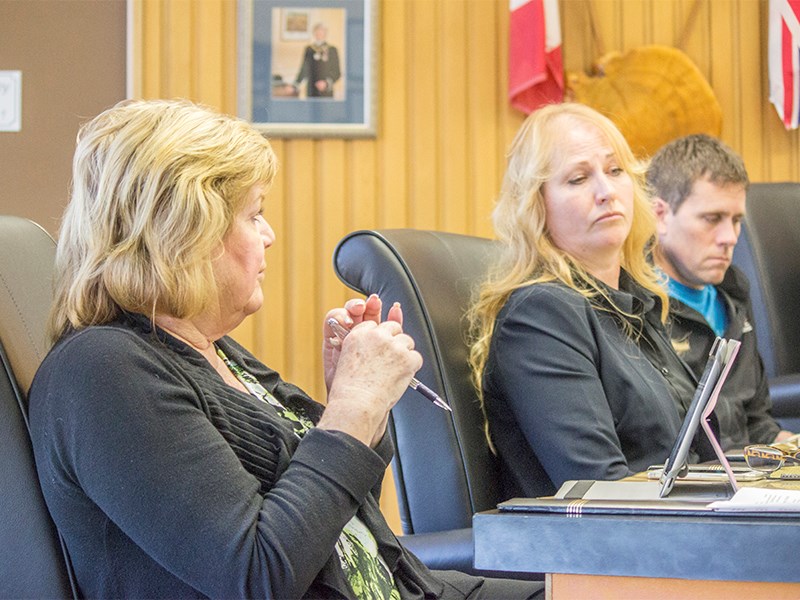City of Powell River council debated a motion on how to proceed with receiving the city’s first housing fund community amenity donation at its meeting on Thursday, April 20.
Although a large number of BC municipalities accept community amenity contributions, up until now Powell River has not, but that is changing as the city works toward establishing its approach to deal with a lack of affordable housing. Last month, council created an affordable housing reserve fund to be funded by voluntary contributions from housing developers.
According to information from the BC government, community amenity contributions are negotiated donations, agreed to by the developer and local government as part of a rezoning process. They can take various forms, but are often financial contributions that go toward facilitating affordable housing.
As Powell River council deliberated on the rezoning of a 5.85-acre parcel of agricultural land above Oceanview Education Centre at the meeting, questions were raised about the wording of the motion that seemed to require a $15,000 contribution to the city’s affordable housing reserve fund as a condition of rezoning.
“I have an issue with the requirement of a voluntary community amenity contribution that’s set at $15,000 without doing any kind of consultation with the developer,” said councillor CaroleAnn Leishman at the meeting. “There’s going to be a huge pushback from the development community if we set a precedent.”
Leishman added that she thought there needed to be more consultation with developers and the public in general before the city begins accepting the donations.
Leishman offered an amendment to the motion to strike out the reference to the $15,000, leaving the voluntary contribution amount open-ended.
According to the motion before it was amended, rezoning would be provided only after the $15,000 voluntary contribution was received in the affordable housing reserve and a tree-management plan for the development was given to the city planning department.
A 2014 report from the BC government on community amenity contributions warns local governments that they must not impose amenity contributions, but negotiate with developers.
Responding to Leishman, councillor Maggie Hathaway said she agreed the rezoning should be given a third reading, but that council should hold off adopting it until councillors have the chance to discuss the matter further.
“I have a problem with a voluntary contribution of $15,000,” Hathaway told council. “It doesn’t sound very voluntary to me. We weren’t involved in any discussions on how this figure was arrived at.”
Council voted to establish its affordable housing fund in March, but currently does not have any policies or bylaws pertaining to handling community amenity contributions.
Addressing council at the meeting, city senior planner Jason Gow said Powell River builder and developer Darren Marquis wanted to provide the $15,000 community amenity contribution to council at an April 6 public hearing, but a miscommunication prevented him from being able to tell council.
Once a public hearing is closed, councillors have two weeks to consider the public’s thoughts and are not permitted to be given new information, said Gow.
“Unfortunately, we’ve been in a blackout where to deliver that information to you was actually not possible,” he said. “It’s coming out now because we’re now looking at third reading.”
Gow added that staff had been negotiating with Marquis on the contribution.
This approach, working with developers on a case-by-case basis, gives the city a degree of flexibility to establish contributions and is common in many BC municipalities, said Gow.
Councillor Russell Brewer told council that if staff is working with developers on an ad-hoc basis, then worries about setting a standard were baseless.
Brewer reminded council that rezoning would lead to a considerable lift in land price for the nearly six-acre parcel in question, and having the proponent provide the city’s affordable housing reserve with $15,000 was modest.
Leishman said despite staff’s assurances that the original motion would not set a precedent, the idea of having a set dollar amount left her feeling uncomfortable.
“I’m happy to leave it to staff to work with the developer on the amount,” she told council. “If it turns out to be $15,000, so be it.”
The amended motion to give third reading and require a community amenity contribution passed unanimously.
Marquis, who attended the meeting, said afterward he was reluctant to comment on the city’s process, preferring to wait until his rezoning was approved, but did indicate that the delay would not affect whether a donation was provided.
”Our intention is that we will be contributing to the fund,” he said, “absolutely.”



